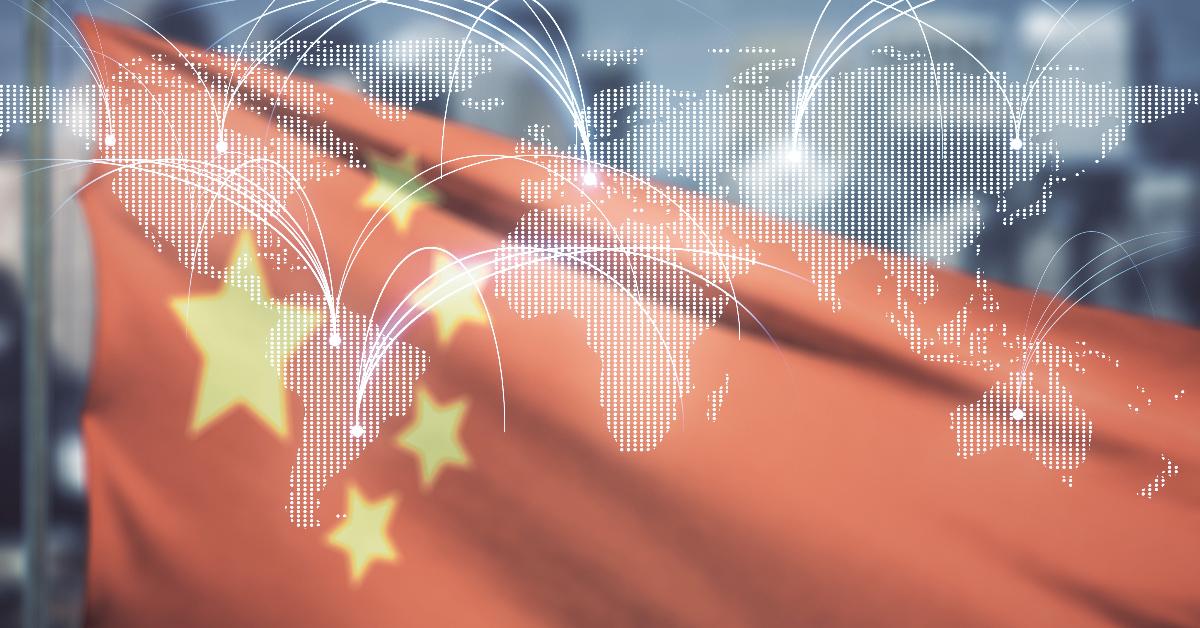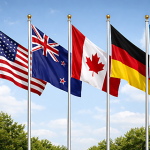
It was a laughable moment when President Joe Biden said at a press conference during his visit to Hanoi that the United States wasn’t seeking to contain China. Despite efforts by the Biden administration to send its top officials to quell any suspicion that Washington, DC, was trying to contain China, Beijing has realized that the efforts were merely a cover-up. By restricting access to chips and their manufacturing components as well as spending billions on subsidies for semiconductor manufacturing and rare earth mineral refineries (similar to how Beijing treats its tech sector)—combined with numerous high-ranking members of the Beltway wanting containment, including Mike Pompeo, Nikki Haley, and others in Congress—it doesn’t take long to realize that the containment of China is Washington’s top goal.
However, outside of the Western bloc, many have been sitting on the fence with anxiety over an increasingly factionalized world. When the invasion of Ukraine started, more than 140 countries condemned it compared to over thirty that abstained from the vote, with only five backing the invasion. Over the past year, however, the ambivalence toward the invasion has been starker, with only the countries that are part of the Western bloc consistently maintaining their opposition to the Kremlin. With China lumped together with Russia as a challenge to the West, the Global South has to tiptoe around China and the West, hoping to maximize foreign investments while not getting caught in the bad parts of a geopolitical campaign between China and the West or incur the wrath of Western sanctions and potential political machinations.
In Southeast Asia, long-standing principles of neutrality championed by the Association of Southeast Asian Nations (ASEAN) bloc have become a divisive topic. For Indonesia, Laos, and Cambodia, relations with China aren’t constrained by territorial claims made over their land. Thailand, Malaysia, and Brunei have maintained a more neutral position by positioning themselves not too close to either China or the West whereas Vietnam and the Philippines appear confrontational toward Beijing. With Biden skipping this year’s ASEAN summit in favor of attending the G-20 summit in India and meeting with the Vietnamese regime to announce a strategic partnership while also building further military ties with Manila, the once-favored neutrality of the bloc has broken down into each country pursuing its own national interests.
From the State Department’s perspective, the popular sentiment in the Philippines and Vietnam is solidly pro-American and anti-China, the geographical location of both countries encompass almost the entirety of the South China Sea, and a young population with low labor costs fit the bill for being excellent partners. These two countries can fulfill the requirements for establishing secure supply chains, ensuring an effective containment of China geographically, and maintaining a favorable political climate in the long term. The first act after Biden departed from Hanoi after declaring a strategic partnership with Vietnam has been to throw taxpayer money at them for a potential semiconductor manufacturing hub in the country through a provision in the CHIPS Act.
However, like many government endeavors and foreign interventions, the assumption that Washington, DC, ought to do something (other than getting out of the way) has always been wrong. While Beijing has a large footprint in the Philippines and Vietnam due to both political and economic reasons, China’s image in both countries is anything but well-perceived, so it should be natural that Washington ought to do something. Good solutions, however, rest on removing military and economic assistance to the Indo-Pacific and not trying to contain China. Many countries prefer the USA to do their job by limiting China’s offense but not enforce containment to the extent where the USA needs to go on the offense. Many of these countries are more than capable of defending their own interests, and it’s even truer for Japan. Japan will step in to counter China’s influence as Tokyo (and the broader Japanese public) fears, if not sees, a Chinese expansion as an existential threat.
The US has to remove all security guarantees for Japan, including the closure of all US bases in Japan and the revocation of the Japan-US Security Treaty of 1960. Otherwise, a removal of US bases only in the Philippines would be in vain. By obligation from the treaty, the US is practically the main defender of Japan and its interests, instead of Japan defending itself from an ever-encroaching China trying to encircle Japan. The capability of the Japanese military can’t be underestimated; the quality of both Japanese personnel and hardware are superior to China’s. Also, given that China is on the offense—combined with the current state of the Chinese economy and the challenges it will face from its many foundational and systemic issues—this would make a military confrontation undesirable.
The idea also applies to Taiwan. The extreme difficulty of an actual invasion due to weather conditions and terrain, the actual size of an amphibious landing, a real possibility of a guerrilla war if landings were successful, and possible Japanese intervention despite incompetent military leadership in Taipei would keep China at bay despite increased aggression. Moreover, it would be a great mistake to assume that other ASEAN countries won’t do anything. China, to emphasize again, is on the offense. Any disruption in trade going through the South China Sea and Taiwan Strait would be a disaster for the economies of ASEAN nations, and Beijing’s wishes of expanding into a hegemony in the region haven’t gone unnoticed.
For Vietnam, the regime will have to confront China more aggressively. Often unknown to foreign observers is that, while the Vietnamese people are extremely anti-China, the ruling Vietnamese Communist Party prefers greater cooperation with China on economic projects. Hanoi also concurred with China’s territorial claim in the South China Sea in a diplomatic note sent to Beijing in 1958 for a security guarantee from China. While such information about the regime will remain hidden from the Vietnamese public, removing American military help in patrolling the South China Sea will force the Vietnamese Communist Party to scrap the 1958 diplomatic note since the choice between appeasing the public and favoring increased Chinese influence becomes more black-and-white when cooperating with the public interest becomes a greater security guarantee than the 1958 diplomatic note.
Finally, the Beltway should disengage with Kiev by ending the proxy war and normalizing relations with Moscow. Until the invasion of Ukraine, Tokyo and Moscow were close for Japan being a Western-aligned nation, and the latter was engaged in a competition with Beijing for influence in central Asia and areas near the Sino-Russian border; Tuva, Vladivostok (which is Russia’s main access to the Pacific Ocean), and large swathes of land in Siberia were once Chinese territories. By returning to the status quo, China’s footprint in Russia and central Asia will contract significantly.
For those who fear a potential Russian expansion into Europe, the reality is that Moscow simply doesn’t have the means for expansion thanks to its lackluster economy that is dependent on oil and gas revenue, with a demographic crisis and a persistent brain drain problem (with talent often flocking to the USA). Both trends have been persistent long before the war, combined with the fact that the war happened thanks to the continuing trend of trying to place Ukraine further into the West to contain and force a regime change onto Moscow.
Ultimately, Washington is acting with the same folly as Beijing. Even as Washington adopts realpolitik to convince the third world to contain China, the third world could simply pit China and the USA against one another while extracting taxpayer money in a never-ending competition for influence with China. China already has more than enough beef with its neighbors and is wasting much of its people’s livelihood for a failed “Chinese century,” so why should America try to contain China in the first place? There is no point in wasting taxpayer dollars while failing to establish a “secure supply chain” for semiconductors by trying to undo global trade, including trade with China. Others’ security matters are theirs, lest Washington let them delegate the price tag and danger to us.







